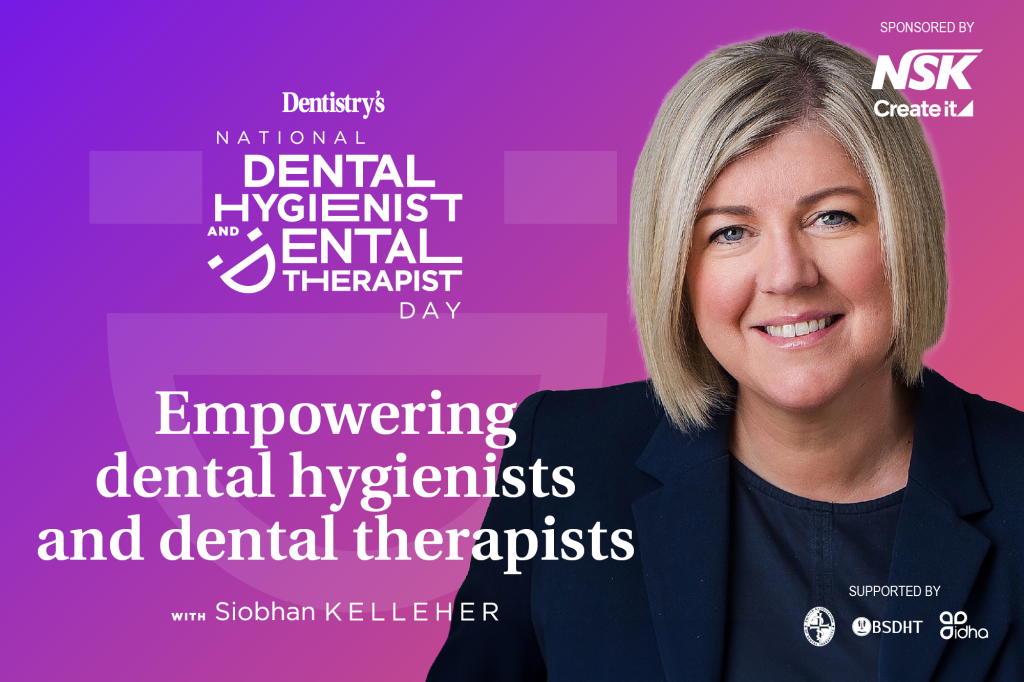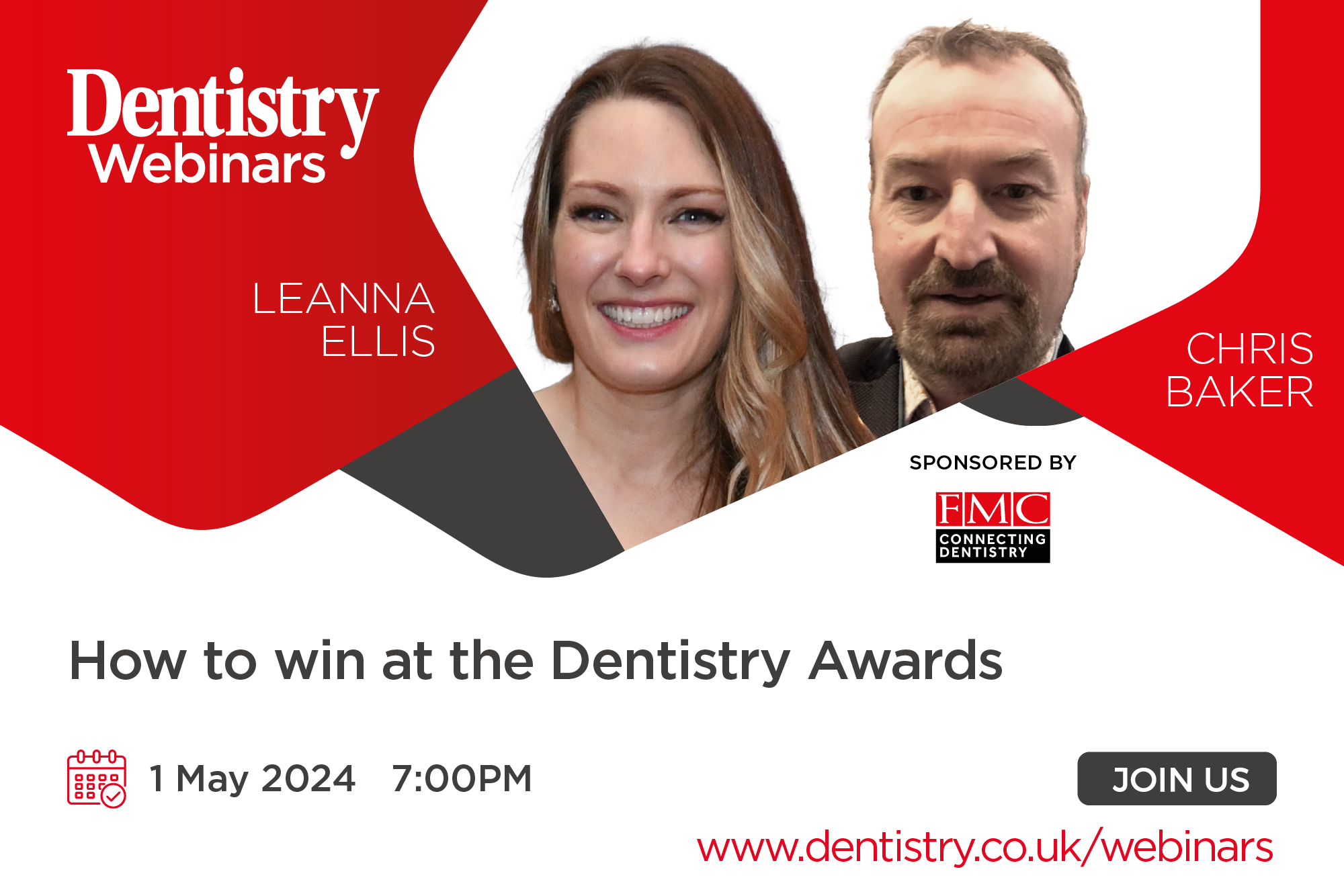
Siobhan Kelleher explains why now is the moment for dental hygienists and dental therapists to work to their full capabilities to improve oral health outcomes.
These are exciting times for dental hygienists and dental therapists. The chief dental officer (CDO) for Ireland, Dr Dympna Kavanagh, recently said of the profession: ‘We are the right people in the right place at the right time.’
This positive affirmation from the CDO should be music to our ears. Support from this quarter will help ensure that oral health starts to be recognised as a key element of a wider general health strategy. If actioned, this should improve overall health outcomes for all.
The issues faced
There are five main noncommunicable diseases (NCDs) – cardiovascular disease, cancer, chronic respiratory disease, mental health disorders and diabetes (PAHO, 2024). According to the World Health Organization (WHO) NCDs kill 41 million people each year, equivalent to 74% of all deaths globally (WHO, 2023). They are a result of a combination of genetic, physiological, environmental and behavioural factors. The WHO Global Oral Health Status 2022 highlighted the world’s oral health crisis and called for more emphasis on oral non-communicable diseases (WHO, 2022).
NCDs encompass a broad range of conditions that lead to high treatment costs, imposing a direct economic burden on health services and society as a whole. This is problematic for two reasons. Firstly, governments do not have sufficient funds to increase public health spending. Secondly, but importantly, there are not enough healthcare professionals to meet the needs of the general population.
WHO has clearly outlined the economic argument for governments to invest in preventing and controlling NCDs. Also in promoting, protecting and caring for mental health. We dental professionals are well placed to speak to our patients about oral health prevention and non-communicable diseases.
What matters here is much closer to home. We need to recognise and then utilise the skills dental hygienists and therapists offer. It could make a real difference in improving the overall health of our local communities.
Lifestyle medicine
When considering NCDs, there is evidence for prevention using the six pillars of lifestyle medicine. These are plant-based nutrition, physical activity, avoidance of risky substances, stress management, restorative sleep and social connections.
Lifestyle medicine (LM) primarily promotes lifestyle change as a method of treating chronic disease. It can also have a significant positive impact on mental health. Research shows that simple interventions in the six pillars of LM might prevent, delay and improve neurocognitive impairment. This includes preventing and managing risk factors such as diabetes mellitus type 2, hypertension, sleep disorders, illicit drugs and psychiatric factors (Jacqua et al, 2023).
The mouth’s health is linked to various other conditions, including increasing evidence of the link between periodontal and systemic disease. Dental pain has a huge impact on people’s lives, both physically and mentally.
Nearly half of all adults in the UK have some form of periodontal disease (White et al, 2019) and present at dental practices every day. By increasing public awareness of the connection between oral and systemic health and providing treatments using proven preventive products and equipment, hygienists and therapists are well-placed to treat patients in all stages of preventive care.
The challenges for dental hygienists and dental therapists
The perception of dental hygienists and therapists as simply there to provide a scale and polish is outdated. The new model for practices of the future relies heavily on the skills of this group of dental care professionals, who are highly qualified in their own right. They are able to diagnose, perform oral cancer screening, promote health, and of course prevent disease.
There is no doubt in my mind that dental hygienists and therapists are valuable (and often underrated) dental team members. They are ideally placed to help patients implement and maintain healthier lifestyles as they see them at regular intervals. However, this additional support takes time and cannot be done effectively under the current model of 30-minute appointments.
The learners on the Postgraduate Diploma in Oral and Positive Health (Level 7) have already changed their practice and look at treatments and their patients differently.
Join the Ikigai Oral Hygiene Community
Whether working independently, under a direct access arrangement, or under the prescription of a dentist, hygienists and therapists remain at the forefront of dental care for patients. They are fundamental to the future success of dental practices.
The NSK Ikigai Oral Health Community is a dedicated dental hygienist and therapist support network. It is an active community and professional hub that underscores the crucial role dental professionals play in oral health and the wider healthcare arena.
The services of dental hygienists and therapists are in high demand and patients have increasingly complex needs. There is an understanding that as clinicians, hygienists and therapists can be overwhelmed by responsibility and feel isolated. A support network of like-minded professionals is one pivotal way to change that. NSK Ikigai provides this platform and allows fellow professionals to reach out and gain new clinical skills. They can also follow thought leaders and develop new professional relationships.
Get connected
The NSK Ikigai Oral Health Community is focused on connecting people through a whole programme of Ikigai live events and webinars and our thriving online Facebook and Instagram groups.
Members can interact and join in with hands-on workshops with Ikigai clinical educators from all areas of dentistry at upcoming events, including:
- NSK Ikigai Dental Hygiene & Therapy Forum – 23 May – two webinars featuring two panels of the UK’s leading faces in dental hygiene and therapy and a moderator for each – ‘Talking therapy’, 7pm-8pm followed by a hygiene panel, 8pm-9pm
- The Scottish Dental Show – 31 May-1 June 2024
- Dentinal Tubules Annual Global Congress – 2-4 October 2024
- IDHA Conference – 11-12 October 2024
- BSDHT Oral Health Conference 2024 – 22-23 November 2024 – the biggest event of the year for dental hygienists and therapists with two days of clinical education and CPD, featuring presentations from leading speakers and updates from the profession.
The 2024 programme of Ikigai Oral Health Community webinars covers a range of wellbeing and clinical subjects from leading educators. It also includes Ikigai Enhance, a new series of face-to-face clinical skills training courses for hygienists and therapists to fully embrace their vocation.
The NSK Ikigai community connects people, empowers them with learning, and gives them the confidence to tackle professional challenges and understand better ways to manage health and wellness to enhance career satisfaction. Come and join us!
Join NSK Ikigai Dental Hygiene and Therapy Forums on 23 May 2024 at mynsk.co.uk/ikigai/webinars/. Email your questions for our panellists to [email protected].
To find out more about the NSK Ikigai Oral Hygiene Community and all upcoming webinars and face-to-face events visit mynsk.co.uk/ikigai/. For all the latest news and chat join us on Facebook at facebook.com/groups/NSKIKIGAI or on Instagram @ikigaioralhygiene.
References
- https://www.paho.org/en/topics/economics-ncds
- https://www.who.int/news-room/fact-sheets/detail/noncommunicable-diseases issued 16 September 2023
- https://www.who.int/team/noncommunicable-diseases/global-status-report-on-oral-health-2022
- Jaqua E, Biddy E, Moore C, Browne G. The Impact of the Six Pillars of Lifestyle Medicine on Brain Health. Cureus. 2023 Feb 3;15(2):e34605. doi: 10.7759/cureus.34605. PMID: 36883088; PMCID: PMC9985951
- White D A, Tsakos G, Pitts N B, Fuller E, Douglas G V, Murray J J, et al. Adult Dental Health Survey 2009: common oral health conditions and their impact on the population. Br Dent J 2012; 213: 567–572



